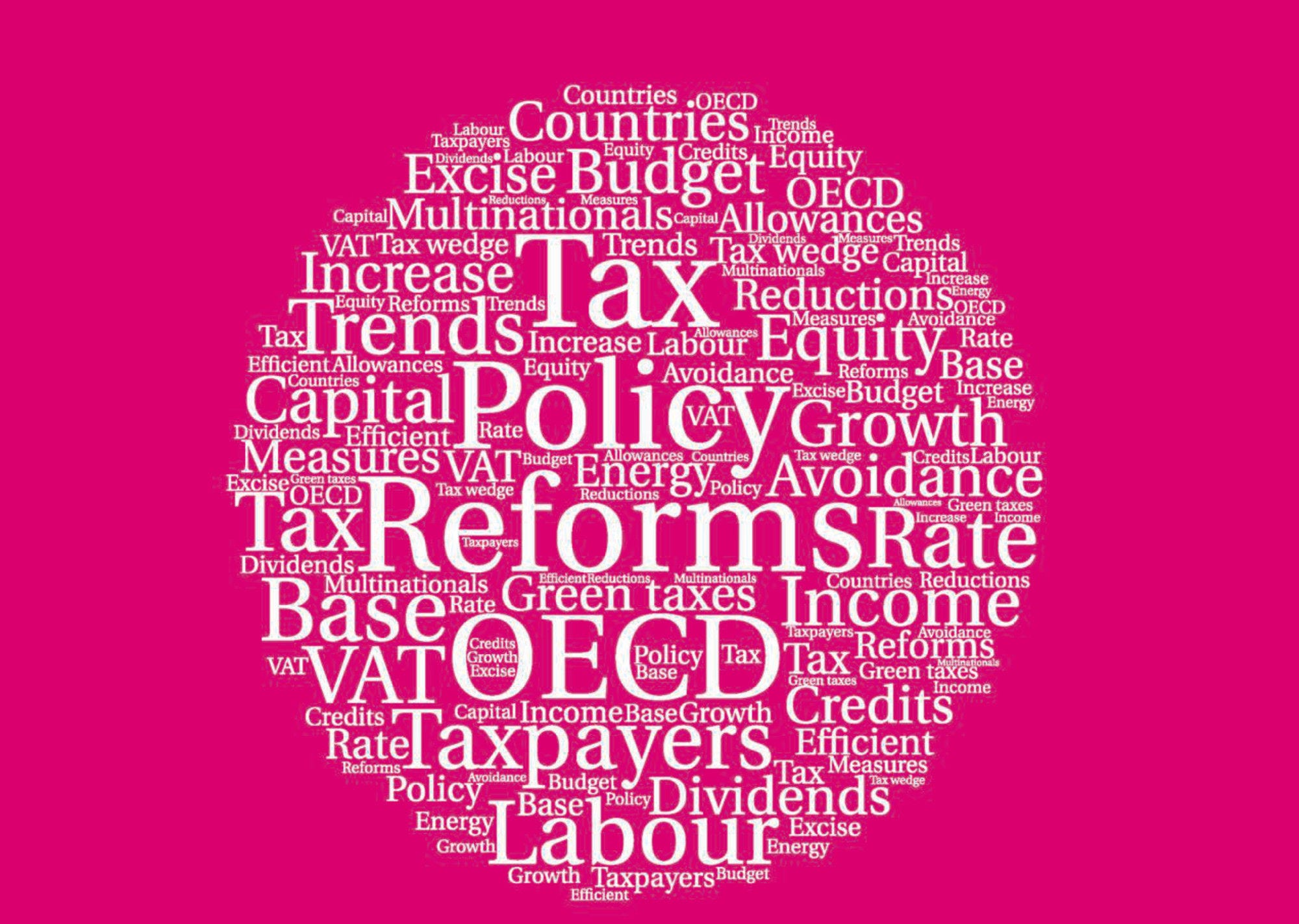This is the fifth edition of Tax Policy Reforms: OECD and Selected Partner Economies, an annual publication that provides comparative information on tax reforms across countries and tracks tax policy developments over time. The report covers the latest tax policy reforms in all OECD countries, as well as in Argentina, China, Indonesia and South Africa. In addition to providing an overview of the tax reforms adopted before the COVID-19 crisis, the report includes a Special Feature that takes stock of the tax and broader fiscal measures introduced by countries in response to the crisis from the beginning of the virus outbreak up to mid-June 2020.
Tax Policy Reforms 2020

Abstract
Executive Summary
Tax Policy Reforms: OECD and Selected Partner Economies is an annual publication that provides comparative information on tax reforms across countries. It tracks tax policy developments over time and gives an overview of the latest tax reform trends. This year’s edition focuses on the tax reforms that came into force or were due to come into force in the second half of 2019 and 2020. However, given the significant packages of measures that were introduced in the first half of 2020 in response to the COVID-19 crisis, the report also includes a Special Feature on “Tax and Fiscal Policy Responses to the COVID-19 Crisis”. This Special Feature takes stock of the tax and broader fiscal measures introduced by countries from the beginning of the virus outbreak up to mid-June 2020, largely based on countries’ updates to the database1 compiled by the OECD on tax and fiscal policy responses to the crisis.
This year also marks the first time that China is included in the publication. This year’s report covers 40 countries including all OECD countries (with the exception of Colombia,2 which became a member of the OECD after the primary data collection exercise had been completed), as well as Argentina, China, Indonesia and South Africa. The intention is to continue expanding the coverage of the report to additional G20 countries.
In its assessment of the reforms adopted before the COVID-19 crisis, and due to come into force in the second half of 2019 and 2020, the report identifies a number of common tax reform trends across countries. It should be noted that these are trends that emerged before the COVID-19 crisis and that reforms have in some cases been delayed in response to the crisis. More generally, the COVID-19 crisis should be seen as a significant intervening event and future reports will focus on the impact of the crisis on these longer-term trends. Looking at the reforms adopted before the COVID-19 crisis, the report identifies the following trends:
Personal income tax (PIT) reductions, targeted in particular at low and middle-income households, have continued. While this trend represents a broad continuation of PIT reforms in recent years, an intensification of PIT rate cuts has been observed. PIT base narrowing measures, often targeted at families and low-income earners, have also been frequent. Regarding the taxation of household capital income, limited changes have been introduced, involving both tax increases and decreases. These measures have included changes to the taxation of rental income as well as expanded tax reliefs to support small savers.
Changes to social security contributions (SSCs) have been limited both in number and in scope. Most of the reforms were aimed at lowering SSCs, but changes were generally modest. This confirms that the pace of reform in this area has slowed.
Corporate income tax (CIT) rate cuts have continued in 2020. As was the case last year, the most significant CIT rate reductions have generally been introduced in countries with higher initial CIT rates, leading to further convergence in statutory CIT rates across countries. Many countries have also reinforced the generosity of their corporate tax incentives to stimulate investment, innovation and environmental sustainability.
With regard to international taxation, efforts to protect CIT bases against corporate tax avoidance have continued with the adoption of significant reforms in line with the OECD/G20 Base Erosion and Profit Shifting (BEPS) project. The tax challenges arising from the digitalisation of the economy continue to represent a major concern for many countries. Efforts to achieve a consensus-based multilateral solution to address those challenges are ongoing, but a growing number of countries have announced or implemented interim measures to tax certain revenues from digital services in the meantime.
The stabilisation of standard value-added tax (VAT) rates observed in recent years is continuing, while VAT base changes have involved a mix of base broadening and base narrowing measures. High standard VAT rates in many countries have limited the room for additional rate increases. Instead, many countries have concentrated their efforts on the fight against VAT fraud and on ensuring the effective taxation of cross-border online sales to raise additional revenues and strengthen the functioning of their VAT systems. On the other hand, an increasing number of countries have narrowed their VAT bases by expanding the scope of their reduced VAT rates, which suggests a slight departure from trends in previous years, where the predominant objective of VAT reforms was to raise additional revenues. A number of countries have also raised their excise taxes, in particular on tobacco products and sugar-sweetened beverages, in line with trends in previous years.
Environmentally related tax reforms have continued at a slow pace in 2020. While the number of measures adopted increased compared to 2019, reforms were concentrated in a few countries and their scope remained generally limited. Most of the reforms were related to the taxation of energy use, but unlike in previous years, transport fuels were not the main focus. Instead, changes were made to carbon taxes and taxes on electricity consumption. Tax reforms in the transport sector, aside from energy use, were limited to adjustments to vehicle registration taxes and tax reductions for vehicles running on alternative fuels. There was an increase in reforms related to other environmental tax bases (e.g. plastic and waste), but their overall number remained limited.
There has been an increased focus on property taxation compared to previous years. Previous editions of this report have generally shown limited changes to property taxes. This year marks a change, with an increasing number of reforms in this area. In addition, while previous years saw a mix of tax increases and decreases, this year shows a clearer trend towards increases in property taxation.
The Special Feature on “Tax and Fiscal Policy Responses to the COVID-19 Crisis” shows that countries have taken swift and significant policy action in response to the crisis. While the size of fiscal packages has varied across countries, most have been significant, and some countries have taken unprecedented action. The initial measures introduced by countries focused on keeping businesses and households afloat, mainly through liquidity support for businesses, job retention schemes, and income support to households. As the crisis has continued, many countries have expanded their initial response packages. Some countries have also decided to adjust some of their initial measures or to wind back or delay tax reforms that were due to come into force. The most recent measures and discussions suggest that the recovery phase will be supported by expansionary fiscal policy in many countries, including through measures to support investment and consumption and ongoing support for households and businesses.
The report contains four chapters. Chapter 1 discusses the macroeconomic background before the COVID-19 crisis, and provides a brief overview of the impact of the crisis on the global economy. Chapter 2 presents the latest trends in tax revenues and tax mixes. Chapter 3 gives an overview of the tax reforms entering into force or due to enter into force in the second half of 2019 and 2020. Finally, Chapter 4 provides an overview of the measures adopted by countries so far in response to the COVID-19 crisis, in the Special Feature on “Tax and Fiscal Policy Responses to the COVID-19 Crisis”. The Special Feature in this year’s report focuses mainly on the emergency measures announced in response to the crisis. However, the significant increases in government expenditure and the expected dramatic decline in tax revenues in the aftermath of widespread economic lockdowns are likely to present a large range of medium to longer-term fiscal challenges. In responding to these challenges, tax policy will be one of the key instruments to be relied upon by policy makers. Against this backdrop, ongoing developments in tax policy in this rapidly evolving environment will be monitored and assessed in future editions of this report.
Notes
← 2. Colombia is included in the Special Feature, but not in the other chapters of the report.












